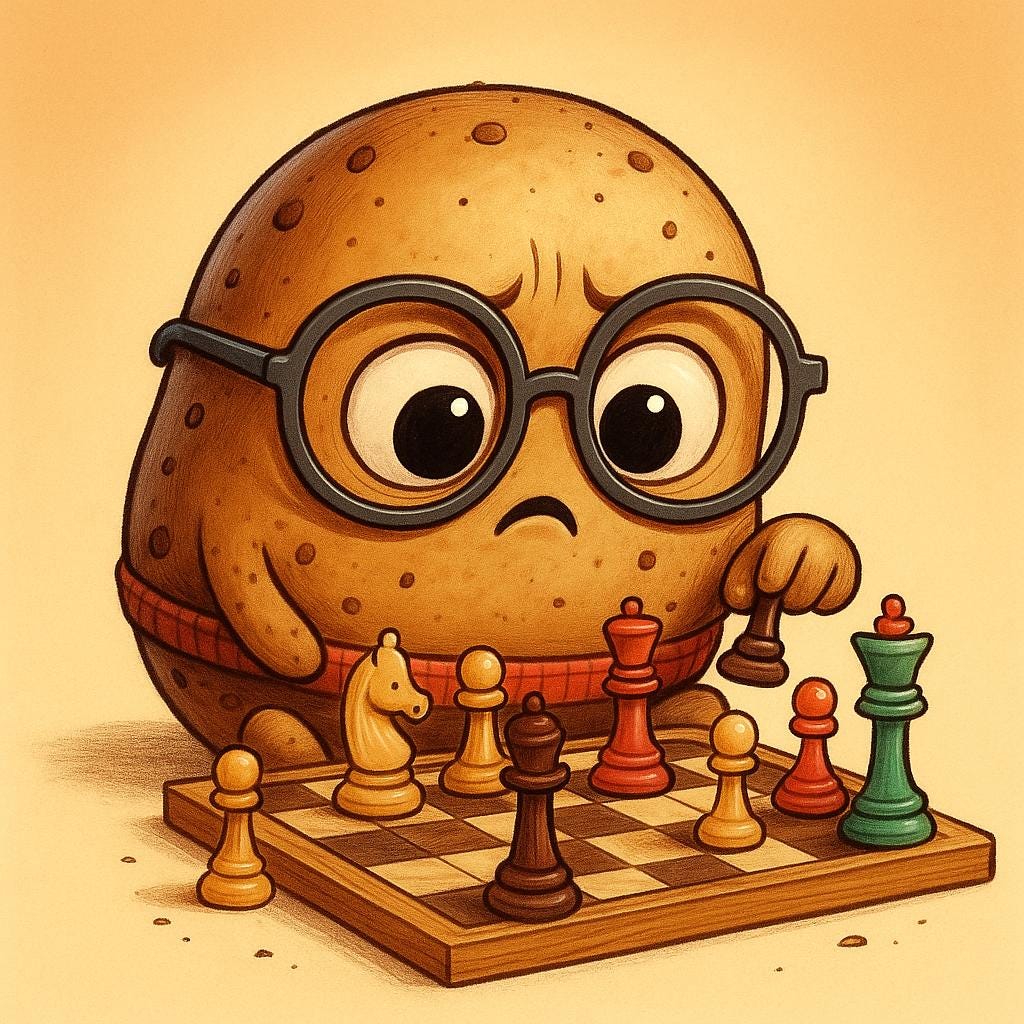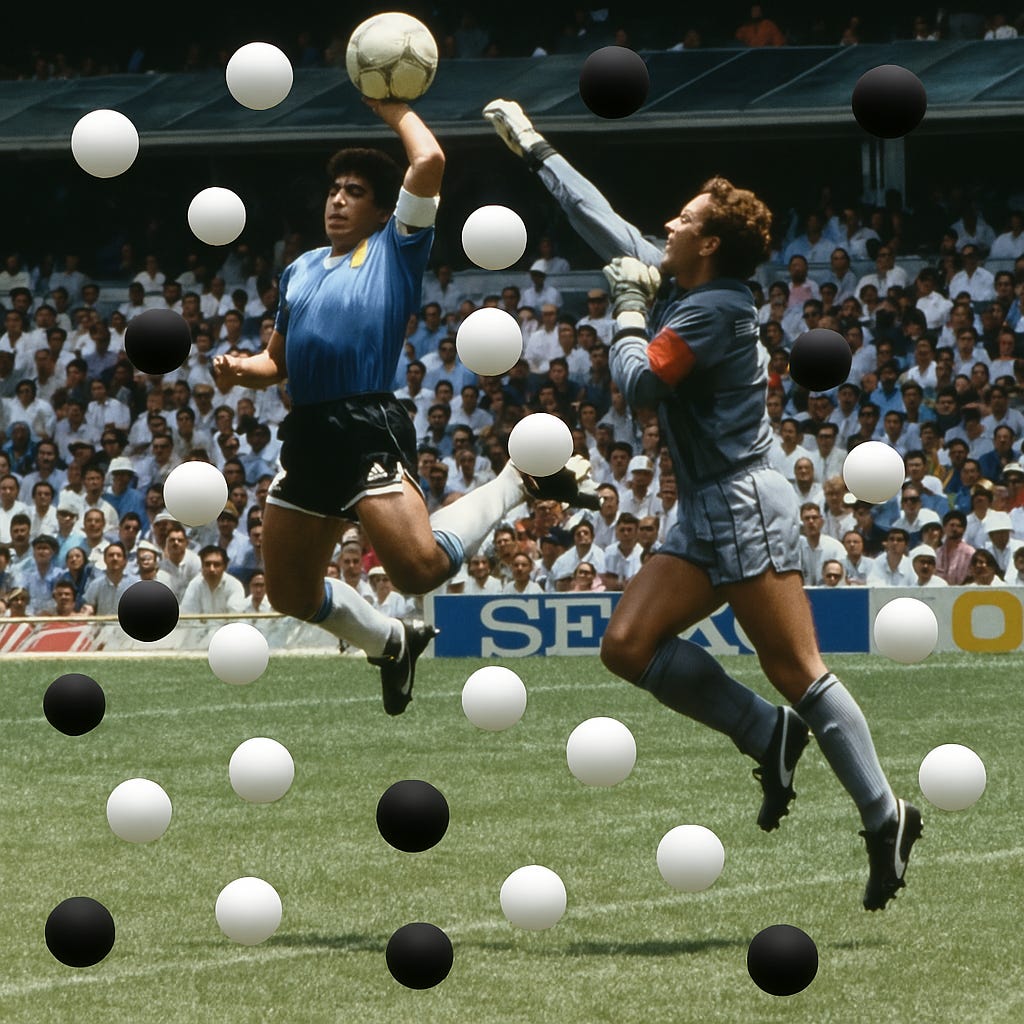This post is for paid subscribers only. If you are still able to read the article, it probably means you have already paid. Ha, check mate. Do check your bank account though. We care.
Wait, this Go robot thing happened in 2017!?
The Netflix documentary about AlphaGo was released in 2017. It covered the 5-match challenge between Lee Sedol and a Go-playing computer program developed by DeepMind. If you’re like me — a mildly obsessive board game addict interested in technology — the documentary was highly captivating. It hits emotionally and keeps you hooked throughout!
Regarding the match itself, it might not need a spoiler alert at this point - the computer program won the series decisively, 4-1.
Two players retired soon after this challenge. One, AlphaGo. It had become too easy. What more could one do after comfortably trumping the then World No. 1?1
And two, Lee Sedol.
“Even if I become the number one, there is an entity that cannot be defeated.”
Now, that’s mildly depressing, isn’t it?
Someone at the peak human capability of what’s realistically possible in this highly complicated game just lost their drive. He had a couple of other reasons that involved spats with the Korean Go association but a deeper, nagging sense of something humanly unachievable had dawned on him quickly after the challenge.
I play much less chess now
I recently read an interview that Lee Sedol gave to NY Times in 2024 and he said
“I could no longer enjoy the game. So I retired.”
It is egregious to compare my passing obsession with chess to Lee Sedol’s life spent in mastering Go. But as someone who grew up playing chess from childhood to college, I have played far less chess in recent years, and much less enthusiastically for nearly the same reason as him. I had started seeing the game as a solved problem, and suddenly it wasn’t as appealing any more.
Kasparov, Ken Jennings, Lee Sedol, and why I still play
Smarter people who, post-AI-loss day job (*cough cough* after sort of retiring from chess or Jeopardy!) are thinking about these things have better things to say on the topic. Outdone by algorithms, each of them went through a different route from denial to acceptance in their respective five stages. They are fine now!
Personally, I’ve reluctantly come to realize that framing the game as a problem to be solved strips it of everything that makes it enjoyable; chess is neither a hard maths2 question, nor world hunger or poverty. Chess, Go, and anything similar naturally invite structured analysis and it is easy to think of them as things to get to a solution to. We know there’s an objectively optimal spot to place the black stone, we know there’s an objectively good square for the white knight in the next move. But the simple act of sitting across your opponent,with only a chess board and a quietly ticking clock between you, and going through this stressful feeling of your mind saying, “Nh3” and your gut laughing at your brain, is by itself an experience that’s worth enjoying.
I still get this feeling in a semi-serious online match with a random stranger, and in a 3-beers-down sobering rapid game with a friend.3
Aftermath
In a more recent interview with Google, Lee Sedol said
The Go I learned is about thinking alone and two people coming together to create a single masterpiece…
It would be a stretch to call my one-minute bullet games with a random online stranger from Romania or Panama a masterpiece but some of my early game blunders come pretty close. That’s beautiful enough.
Well, it would go on to learn Go strategy all by itself without any humans involved, then master chess as a side quest, and finally teach the rules of these games by itself, and … sigh.
Meet me outside if you say math
A friend used to let out his frustration as a quick scream after a late game blunder in a 10 minute game to an online stranger, much to the surprise of his partner. The partner has since been acclimatized to the behavior which probably means he still makes those blunders. But I wonder if he’d have a similar reaction if he was playing against one of those pre-rated bots from Chess.com. It felt nice to write this semi-poignant sentence but I guess I could just ask him.
Bonus trivia: Move 78, played by Lee Sedol in match 4, is called the “Kami no Itte” or the Hand of God. Go is typically played using hands though.


